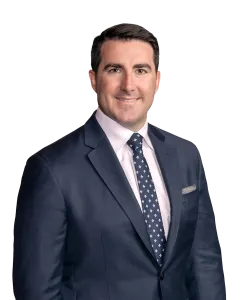DOJ Asks Supreme Court to Review Insider-Trading Decision Limiting Tipper-Tippee Liability Without Exchange of Value
On July 30th, the Department of Justice petitioned the US Supreme Court to reverse United States v. Newman, 773 F.3d 438, 438 (2d Cir. 2014), a high-profile insider-trading decision by the Second Circuit that curtailed tipper-tippee liability.
In Newman, the Second Circuit held that the government cannot prove a tipper personally benefitted from disclosing material, nonpublic information in breach of a fiduciary duty by demonstrating only that the tipper and tippee were friends; instead, the government must prove that the tipper expected a potential pecuniary gain or other valuable consideration in exchange for the disclosure.
The DOJ filed its petition amidst growing uncertainty about the reach of Section 10(b) of the Securities and Exchange Act of 1934 and Rule 10b-5 in tipper-tippee cases, and on the heels of a Ninth Circuit decision—penned by a district court judge from the S.D.N.Y. sitting by designation—that casted doubt on Newman. If the Supreme Court grants cert, it will likely refine the “personal benefit” test first articulated in Dirks v. S.E.C., 463 U.S. 646, 662 (1983), and may redraw the lines governing tipper-tippee liability.
Dirks and the “Personal Benefit” Test
In Dirks v. S.E.C., the Supreme Court limited the scope of tipper-tippee liability, holding that a tipper’s liability depends on whether he breached a fiduciary duty to shareholders, and a tippee’s liability depends on knowledge of that breach. To determine whether the tipper breached, the Court articulated the “personal benefit” test: “[T]he test is whether the insider personally will benefit, directly or indirectly, from his disclosure. Absent some personal gain, there has been no breach of duty to stockholders. And absent a breach by the insider, there is no derivative breach.” A personal benefit, the Court explained, includes “pecuniary gain or reputational benefit that will translate into future earnings.”
Noting that the existence of a personal benefit is a difficult question of fact, the Court cited two examples that often justify an inference of personal benefit: (1) “a relationship between the insider and the recipient that suggests a quid pro quo from the latter, or an intention to benefit the particular recipient”; and (2) when “an insider makes a gift of confidential information to a trading relative or friend” such that “[t]he tip and trade resemble trading by the insider himself followed by a gift of the profits to the recipient.” The insider in Dirks was a former employee at Equity Funding America, who tipped Dirks, and investment analyst, in an attempt to expose fraud at the company. Because the insider did not intend to personally benefit, he did not breach a fiduciary duty, and Dirks was not derivatively liable for passing information to investors.
Just Friends, or Friends with Benefits? The Newman and Salman Circuit Split
More than thirty years after Dirks, courts continue to grapple with the personal-benefit test, culminating over the past year in a split between the Second and Ninth Circuits about whether personal benefit can be inferred from mere friendship between the tipper and tippee.
In Newman, the Second Circuit vacated insider-trading convictions of two hedge-fund managers, holding that there can be no inference that a tipper personally benefitted from a disclosure “in the absence of proof of a meaningfully close personal relationship that generates an exchange that is objective, consequential, and represents at least a potential gain of a pecuniary or similarly valuable nature. In other words … evidence of ‘a relationship between the insider and the recipient that suggests a quid pro quo from the latter, or an intention to benefit the [latter].’” Observing that the government is prosecuting increasingly remote tippees, the court explained: “[Dirks] does not suggest that the Government may prove the receipt of a personal benefit by the mere fact of a friendship, particularly of a casual or social nature. If that were true, and the Government was allowed to meet its burden by proving that two individuals were alumni of the same school or attended the same church, the personal benefit requirement would be a nullity.”
In its opinion, the court acknowledged criticism by Judge Rakoff, a senior district court judge in the S.D.N.Y., who characterized the Second Circuit’s tipper-tippee case law of being “somewhat Delphic.” As DOJ mulled an appeal, a Ninth Circuit panel that included none other than Judge Rakoff—sitting by designation—heard oral argument in United States v. Salman, which raised an evidentiary challenge based on the Newman decision. Within a week of oral argument in Salman, DOJ obtained an extension of time to petition the Supreme Court in Newman. Within a month of oral argument—in a circuit that typically takes between three and twelve months to issue a decision—the Ninth Circuit denied Salman’s Newman challenge. See United States v. Salman, No. 14-10204, —F.3d— (9th Cir. July 6, 2015). Judge Rakoff, writing for the Ninth Circuit, noted that the court was not bound by Newman, and that it disagreed with Newman to the extent it can be read to hold that evidence of a friendship or familial relationship between tipper and tippee is insufficient to demonstrate that a tipper personally benefited from a disclosure.[1]
Predictions about Supreme Court Review
On the heels of Salman, just days before the filing deadline DOJ asked the Supreme Court to review the Second Circuit’s decision in Newman, calling it “an unprecedented ruling” that “broke with this Court’s decision in Dirks v. SEC,” and that will “hurt market participants, disadvantage scrupulous market analysts, and impair the government’s ability to protect the fairness and integrity of the securities markets.”
Given the recent surge of insider-trading actions, and the uncertainty sowed by the circuit split, we expect that the Supreme Court will grant certiorari in Newman, and will either refine or altogether abandon the personal-benefit test first articulated in Dirks. Although DOJ risks a decision that upholds Newman as law of the land, the Court could also conclude that the Dirks test has proven unworkable, and instead adopt the test suggested in Justice Blackmun’s Dirks dissent, where an insider is presumed to breach a fiduciary duty anytime the insider discloses material, nonpublic information with the intention that investors would trade on that information to the detriment of shareholders. This possibility, however remote, would expand tipper-tippee liability well beyond the personal-benefit test that has governed for more than 30 years.
[1] Notably, SEC Rule 10b5-2(b)(3) provides that a duty of trust or confidence exists when a person receives material, nonpublic information from a spouse, parent, child, or sibling, which duty can give rise to a misappropriation theory of insider trading.
Contacts
- Related Practices

